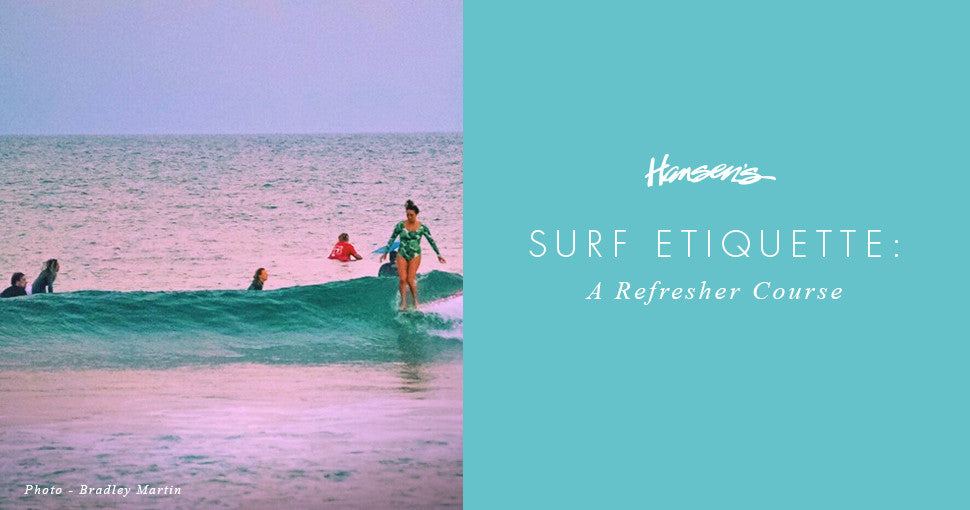Cart Details Should Go Here

Ah, summer, a wonderful time for tourists and residents alike to enjoy the beautiful beaches of San Diego. While there’s plenty of room for all of us, crowded lineups lead to increased tensions in the water – sometimes at the fault of oblivious visitors and beginners, and occasionally, due to aggravated (or entitled) locals. Packed peaks often lead to more than just annoyance: collisions and fights can be extremely dangerous! I figured it wouldn’t be a bad idea to brush over some of the tips and tricks of surf etiquette and safety that surfers of all skill levels should keep in mind.
1. Don’t cut off other surfers.
If you see a surfer take off closer to the peak than you, don’t continue paddling for the wave. Taking off in front of someone could cause a serious crash, leading to damaged surfboards and injuries. If you see that you and another surfer are paddling for the same wave, offer to split the peak (if possible).
2. Paddle out through the channel.
This is a major safety issue. Paddling straight through the lineup puts you at a high risk for getting run over, so it’s best just to go around into the channel. It also makes your paddle out way easier!
3. Don’t be a (total) wave hog.
Of course, more experienced surfers are naturally going to be catching more waves than beginners. That being said, if you’ve caught waves from the last six sets, it wouldn’t kill you to tell someone who hasn’t been so lucky to go for it – especially if you can see that they’re in the right position.
4. Know your limits.
On the contrary to the last tip – don’t paddle for every set if you know that you won’t be able to handle the drop or make it past the section. Blowing it in front of everyone is a guaranteed way to not be given waves for the rest of the session.
5. Just be nice.
If a kook gets in your way or does something lame, just vent to your buddy about it. It does no good to yell at a random who probably just made a mistake. It’s also totally fine to nicely explain to someone that they did something impolite or dangerous, and give them advice on how to prevent future incidents.
Written by: Stephanie Schechter